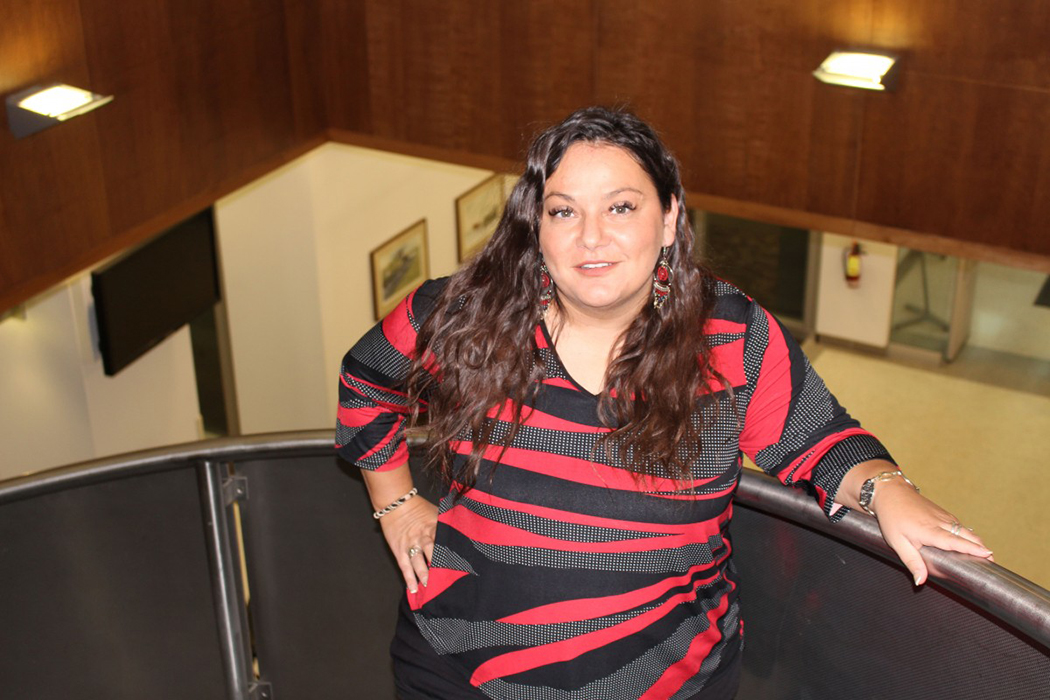
Family medicine professor to lead national Indigenous physician group
The Indigenous Physicians Association of Canada (IPAC) has elected Dr. Mandy Buss, assistant professor at the Rady Faculty of Health Sciences, as its new president.
At first, Buss was hesitant to take on the presidency of IPAC. Although she is also the Indigenous Health Lead in the department of family medicine at Max Rady College of Medicine, Buss hasn’t necessarily felt drawn to leadership positions.
“I’ve never really been one of those people that was like ‘I want to be in leadership.’ It mostly fell upon me because I saw a gap. I noticed the lack of education about the history and contemporary realities of First Nations, Métis and Inuit peoples,” says Buss. “Without that knowledge, I saw my community being harmed.”
So, to bridge those gaps, Buss knew she had to step up at UM. But IPAC had grown substantially over the past few years and Buss was intimidated.
While at Pacific Region Indigenous Doctors Congress (PRIDoC) 2022, surrounded by other Indigenous physicians and IPAC members, she felt ready to take on the challenge.
“There was so much spirit and so much love and I was embraced with so much support from Canadian delegates but also Indigenous doctors from around the Pacific Rim. I had a lot of encouragement from the IPAC board to take on the role,” says Buss.
In her first year as president, Buss is focusing on building and maintaining relationships. IPAC will continue to connect with other national boards to build support and awareness of their organization and mentoring Indigenous residents, physicians and medical students.
“Our organization’s initial mandate was to get together as Indigenous physicians, residents and medical students to support each other who are working and learning within the health-care systems. It’s really invigorating and rejuvenating when we get together. It helps us go back to our jobs and face some of those challenges that we have,” says Buss.
One of IPAC’s initiatives has been to have IPAC staff members visit schools across Canada and connect Indigenous students and Indigenous physicians.
“Just having that presence is so powerful,” says Buss. “[It’s about] fostering relationships between our Indigenous physicians, residents and medical students across Canada so that we can support each other and work together. We’re stronger together than individually.”
Another priority of Buss’ will be trying to create more culturally safe environments within medical schools, hospitals and clinics. She explains that IPAC members may hear racist comments during their rotations or might be balancing trying to support their family while still in school. She hopes to not only support those students through difficult situations, but also ensure IPAC members are safe in these environments.
“For many of our Indigenous students, we have to understand that our health-care systems and our universities were not built with us in mind,” she says. “There was legislation that kept us out of universities. We had to give up our identity and our connection to our communities if we wanted to go to university at one point. These systems were built to exclude us and so our students are still experiencing a lot of stigma.”
As Buss takes on more leadership roles in the health-care system, she is realizing that change can be slower than she originally expected.
“Change takes one seed at a time. You water it and wait for it to grow and that can be really frustrating. You start to think it’s never going to happen but if you keep watering it, you’ll start to see it sprouting. For me, making change is just continuing to do that work hoping that it blooms. And if it doesn’t, you plant a new seed,” says Buss.






